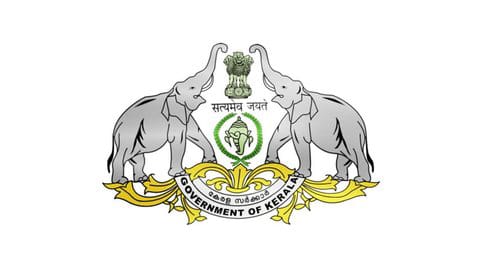
Transparency Under Scrutiny as Kerala Exempts GST Wing from RTI
By Author | May 5, 2025
Kerala News, GST Recent News – 2025
Key Enforcement Wing Removed from RTI Ambit
The Kerala government has removed its GST intelligence and enforcement wing from the scope of the Right to Information (RTI) Act. This decision, formalized through a gazette notification under Section 24(4) of the RTI Act, effectively shields a critical revenue agency from public oversight.
While the Centre has exempted certain agencies citing national security, Kerala’s move has raised eyebrows since the GST wing deals primarily with financial compliance, not intelligence matters related to national security.
Government Justifies Secrecy Citing “Public Interest”
According to the state, the exemption protects ongoing investigations and the confidentiality of intelligence sources. The April 21 notification refers to a similar exemption granted to the Centre’s Directorate of Revenue Intelligence (DRI), which handles Central GST intelligence.
However, critics argue this comparison is flawed. “There is no national security angle here. GST enforcement is about financial compliance, not sensitive intelligence,” said former Chief Information Commissioner Vinson M Paul. “The larger public interest lies in disclosure, not in secrecy.”
Previous Attempts to Restrict Access to Tax Data
This is not the first time the government has used legal provisions to deny information. In several assembly sessions, questions regarding tax evasion by private firms—including Chennai Metro Rail Ltd (CMRL)—were met with denial, citing confidentiality.
One notable case involved Santamonica Study Abroad Pvt Ltd. The GST department refused to release payment details, classifying it as third-party information. Chief Information Commissioner V Hari Nair overruled this in October 2024, stating there is no bar under the RTI Act for sharing such information since it is held by a public authority.
He clarified that Section 152 of the CGST Act does not block the sharing of tax data under RTI. “Disclosing tax information does not amount to revealing commercial secrets,” he emphasized.
Troubled Track Record with Transparency
Kerala has previously withheld critical reports commissioned with public funds. These include:
- The Hema Committee report on the Malayalam film industry
- The probe into a child adoption case involving a CPM leader’s daughter
- A review report on the state’s contributory pension scheme
All of these have faced delays or denials in response to RTI applications or legislative questions.
Conflicting Narratives on Anti-Evasion Drive
The government’s handling of “Operation Palm Tree,” an anti-tax evasion initiative, reflects its inconsistent disclosures. In March 2025, the department told the assembly that data collection was ongoing. Yet, in a press release dated May 23, 2024, the same department claimed it had unearthed ₹1,170 crore in fake transactions, ₹209 crore in tax losses, and 148 fake GST registrations.
This contradiction raises concerns over credibility. If the drive had concluded in May 2024, why did the assembly receive conflicting information nearly a year later?
Experts Warn of Precedent That Undermines Accountability
Transparency advocates see this as a dangerous precedent. “We now have a situation where a critical enforcement wing is insulated from scrutiny,” said a senior official. “Routine disclosures are being treated like state secrets.”
They warn that this could weaken institutional accountability, erode public trust, and further diminish access to governance-related data.
